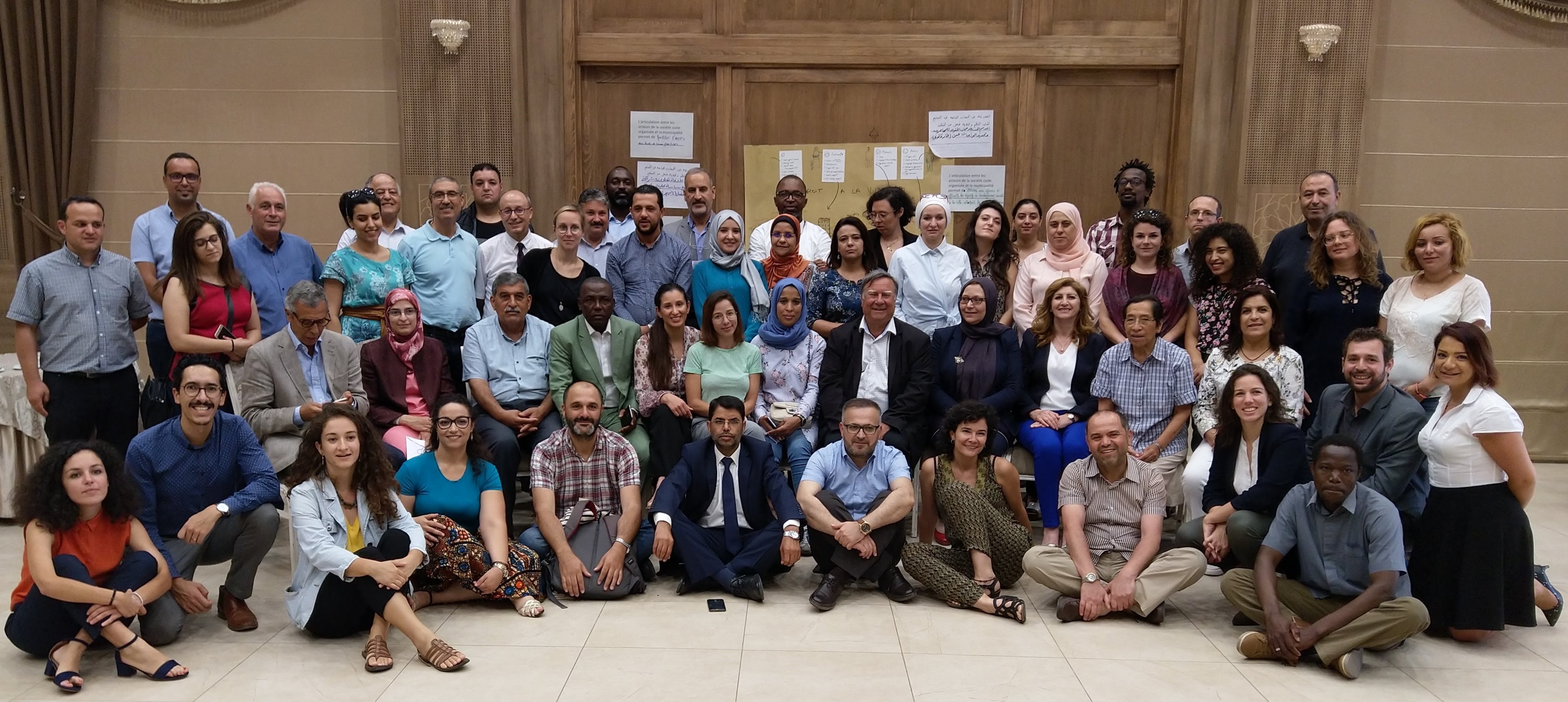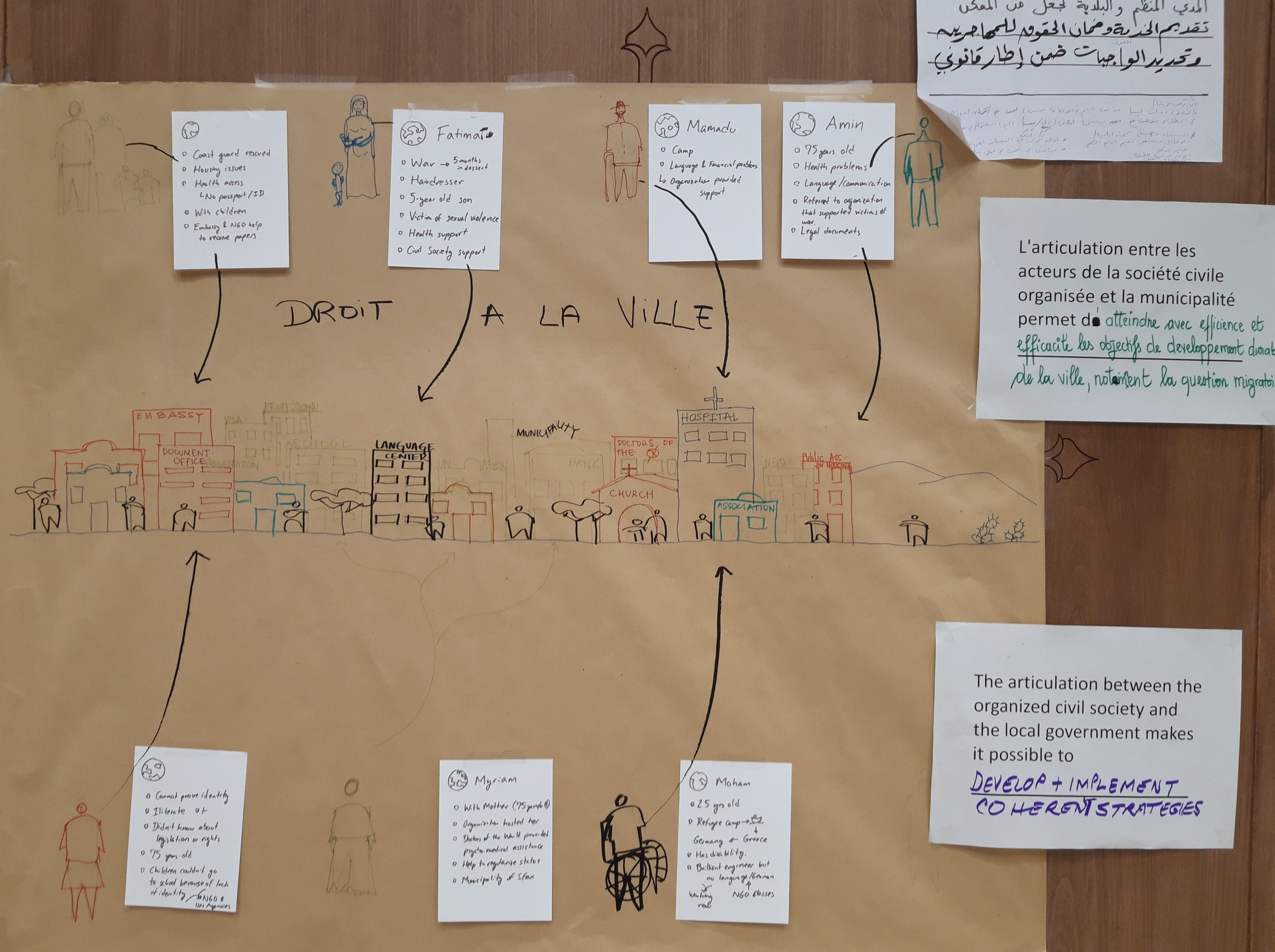October 2019
 MC2CM team. mc2cm@city-to-city.org
MC2CM team. mc2cm@city-to-city.org

Cities located on the two shores of the Mediterranean have always been at the crossroads of migration flows in the region. These cities play different roles in migratory movements – destination, transit or origin – and this diversity of functions has prompted the development of specific strategies, policies and actions designed to respond to each urban migration context.
For that matter, municipalities are often at the forefront of welcoming and delivering assistance to newcomers – especially the most vulnerable ones. In order to face emergency situations, they usually need the support of civil society organisations (CSOs) to provide adequate services in a timely manner. Such collaboration contributes to improve migration governance: on one side, local governments guarantee access to public services and implement effective integration measures, while on the other side, through their direct contact with migrants, CSOs can help create trusted spaces and contribute to a better understanding of migrant populations’ characteristics and needs. Therefore, municipalities tend to capitalise on these efforts to design and put inclusive policies in place.
Those topics were discussed at the "sub-regional Peer-Learning Event" which happened in Sfax -Tunisia- on 25 & 26 June 2019. The "Mediterranean City - to - City Migration" (MC2CM) project supported the gathering of more than 60 participants from around 30 municipalities and local government associations, 16 Civil Society Organisations (CSOs), the African regional section of UCLG (UCLG-A), as well as experts and representatives of international organisations. The methodology set by the MC2CM partners, focused on the dialogue between participants, giving them the opportunity to share local practices and experiences between cities and CSOs facing similar challenges.
This sub-regional peer-to-peer meeting identified mechanisms and practices to consolidate multi-level governance models that integrate civil society in an appropriate way, to promote social cohesion and combat non-evidence-based discourse on migration.
The cities and CSOs present at the event expressed their concerns related to migration and forced displacement, from localities that recently welcomed unprecedented flows of refugees, to municipalities that are located in regions of departure, transit or even places where migrants increasingly settle. This diversity of situations impacts how cities and CSOs cooperate with local entities and how they coordinate among them.
As lessons learnt, the cooperation between municipalities and CSOs is usually focused on two main areas: information sharing and contribution to operational and policy design. This joint work is not, however, straightforward and there are risks associated with the diverging objectives and mandates of each type of organisation. The main difficulties usually stem from:
a) policy inconsistencies;
b) limitations in terms of funding, transparency mechanisms and sustainability;
c) level of reactivity to emerging needs;
d) degree of independence of CSOs when they depend on public funding; and
e) areas for further capacity building and professionalisation for CSOs and local actors.
Several ways to address Municipalities’ and CSOs’ challenges were identified from the exchanges. For instance, the drafting of migration profiles at city level would support closing the gaps linked to the lack of data and offer options to build evidence based policies responding to migrants and migration realities. Along the same lines, the development of coordinated contingency plans could fill the inadequacy of legal frameworks. In some countries where local democracy is building up gradually, trainings and capacity building could be key to fill the lack of experience of some CSOs towards optimizing cooperation with local authorities.
In addition, the activities of civil society organisations are key to balance local population’s perceptions of migration, as they contribute to building bridges that facilitate cultural, religious and social exchange. CSO’s actions promote a nuanced discourse on migration and guarantee respect for human rights in urban areas. Their role is therefore crucial in helping local communities to understand diversity, mitigate tensions, and to explore commonly-shared values.

